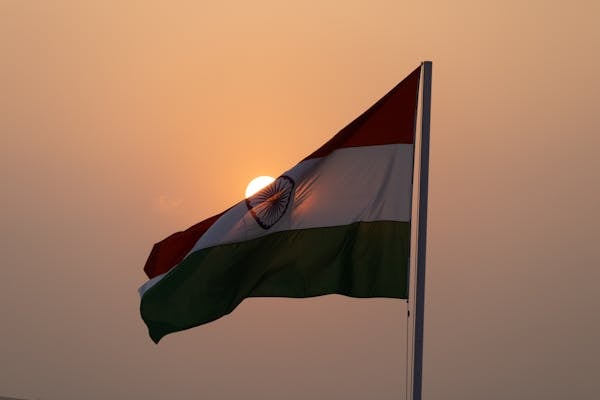The United Nations Security Council (UNSC) stands as the pinnacle of global governance, entrusted with the responsibility of maintaining international peace and security. Its composition, however, remains rooted in the geopolitical realities of the mid-20th century, leaving it ill-equipped to address the challenges of the 21st century. India, a rising power with a rich history of engagement in global affairs, seeks a permanent seat on the UNSC. Let us delve into the ten compelling reasons why India deserves this coveted position.
1. Founding Member and Active Participant
India’s association with the UN dates back to its inception in 1945. As a founding member, India has consistently supported the principles and objectives of the organization. From the Millennium Development Goals to the Sustainable Development Goals, India has actively participated in shaping the global agenda for peace, development, and human rights.
2. Significant Contributions to Peacekeeping
India’s commitment to global peace and security is exemplified by its substantial contributions to UN peacekeeping missions. Indian troops have served in some of the most challenging conflict zones, demonstrating their readiness to shoulder responsibilities beyond national borders. India’s peacekeeping efforts underscore its dedication to maintaining stability and preventing conflicts worldwide.
3. Demographic Weight and Representation
India’s population, exceeding 1.3 billion, represents nearly a sixth of humanity. The UNSC’s current composition does not adequately reflect this demographic reality. India’s inclusion would provide a voice for millions of people who aspire for a safer and more prosperous world. A permanent seat for India would enhance the council’s legitimacy and representativeness.
4. Economic Powerhouse
India’s economic trajectory is impressive. As the world’s fifth-largest economy, it wields considerable influence in global economic affairs. Its growth potential, vibrant markets, and technological prowess make it an indispensable player in shaping the future of international trade, investment, and development.
5. Upholding Democratic Values
India’s commitment to democratic principles is unwavering. As the world’s largest democracy, it upholds freedom of speech, human rights, and the rule of law. India’s democratic ethos aligns with the UN’s core values and reinforces its credibility as a responsible global actor.
6. Managing Diversity and Pluralism
India’s social fabric is a tapestry of diversity—linguistic, cultural, religious, and ethnic. Successfully managing this complexity is a testament to India’s ability to foster unity amidst diversity. The UNSC would benefit from India’s experience in navigating intricate social dynamics and promoting inclusivity.
7. Responsible Nuclear State
India’s nuclear policy adheres to a strict “no-first-use” doctrine. Despite being a nuclear-armed nation, India has maintained a responsible approach, emphasizing disarmament, non-proliferation, and global security. Its inclusion in the UNSC would strengthen efforts towards a safer world free from nuclear threats.
8. Geopolitical Influence in South Asia
India’s strategic location in South Asia makes it a linchpin for regional stability. It shares borders with countries facing complex security challenges. Its active diplomacy, economic partnerships, and cultural exchanges contribute significantly to maintaining peace and cooperation in the region.
9. Soft Power Diplomacy
India’s soft power extends far beyond its borders. Yoga, Bollywood, Ayurveda, and its rich cultural heritage resonate globally. India’s ability to connect with people transcends political boundaries, fostering goodwill and understanding. A permanent seat would amplify India’s soft power impact.
10. Advocate for Developing Nations
India has consistently championed the cause of developing countries. It advocates for a fairer international order, equitable trade practices, and poverty alleviation. As a permanent member, India would amplify the voices of the Global South, ensuring their concerns are heard and addressed.
India’s quest for a permanent seat in the UNSC is not merely an ambition; it is a justifiable demand. Recognizing India’s role, contributions, and potential, the international community must embrace a more inclusive and dynamic UNSC—one that reflects the realities of our interconnected world. India’s seat at the high table would be a step towards a more representative and effective global governance system.

Leave a Reply